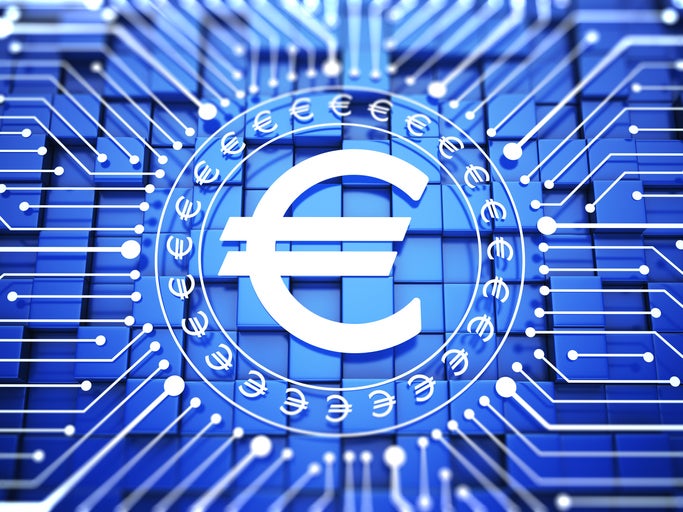
The European Commission has proposed legislation to set out a framework for a new digital form of the euro that the European Central Bank could choose to issue in the future as a complement to cash.
EuroCommerce, the representative organisation of the European retail industry, has collected retailers’ points of view on the proposal and what it means for the industry.

Discover B2B Marketing That Performs
Combine business intelligence and editorial excellence to reach engaged professionals across 36 leading media platforms.
The organisation finds that retailers and wholesalers are closely engaged with the investigation phase of the digital euro, which is progressing towards a decision later this year.
They are keen to add European payment methods, bringing in more competition and affordable pricing versus the current, relatively dominant non-European card-based payment methods.
Along with instant payments, retailers expect that the digital euro will not only enable more competition but also offer simpler fee structures, such as fee-per-transaction, rather than applying a percentage of value.
However, the key to the currency’s success will be whether consumer adoption levels warrant the sector’s investments (time, resources, processes, infrastructure) in the project.

US Tariffs are shifting - will you react or anticipate?
Don’t let policy changes catch you off guard. Stay proactive with real-time data and expert analysis.
By GlobalDataWhilst the basic premise of the digital euro is to provide cash in digital form, retailers see the potential for innovative use cases, such as offline use. This means that at times of internet or power outages, an adequate number of transactions with the digital euro can still take place. It would make the digital euro important in supporting resilience and fallback, much like cash is today.
What are retailers’ concerns about the digital euro?
- Fees: the total cost of acceptance should be as close to zero as possible and on a fee-per-transaction basis, not as a percentage of value.
- Mandatory acceptance: there should be more exemptions from the mandatory acceptance, in particular for the acceptance of cash. The current proposal links cash acceptance too tightly to digital euro acceptance. This will not work in many retail use cases, such as unmanned self-checkouts, fuel stations, vending machines and e-commerce.
- Uncapped fees: with the acceptance of the digital euro becoming mandatory yet free to consumers for basic use, the sector needs strong safeguards against the imposition of overly high fees charged by banks and Payment Service Providers (PSPs).
- New infrastructure and processes: whilst existing systems and processes should be re-used as much as possible to avoid lengthy and costly updates, upgrades and retraining, the digital euro should not seek to replicate the existing landscape as this would potentially limit innovation.
The digital currency’s effects on smaller independent retailers in Europe must also be taken into consideration, as they are already struggling with a cost-of-living crisis and competition from monopolies such as Amazon.



